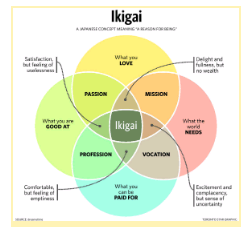ETW Series: Introduction
What comes to mind when you think of the word “while”? To me, it represents the journey, the process, the in between. I used to think that was the horrid part, the boring part.. it was the part I tried to avoid and skip over.
As I’ve come to realise, however, before God can walk you into the promise, He has to walk you through the process. The “while” also tends to be where lessons are learnt, where character is built, and where you learn who (and what) really matters at the end of the day.
This series features just that: stories, or rather, journeys - of triumph, of pain, of heartbreak, of testing. Journeys that usually have a before and after, but journeys that will hopefully teach you so much more because of the “while”.
To kick start this series, here’s an article about me embracing my own “while” a while back:
—
01
While.
A scary word.
It speaks to me of uncertainty, of not being in control, of not being there yet.
I’ve never liked the process. I don’t think many of us do. After all, we like to read before-and-after stories, not before-and-while stories.
At the same time, I’m learning that life itself is made up of while moments.
From a young age, I was always impatient. In fact, I’ve been told that I would cry in the car when we stopped at traffic lights. My parents had to physically shake the car from the inside to give the impression we were moving.
This impatience has unfortunately followed me my whole life. I have a tendency to want to get to the end as soon as possible, taking the quick route despite advice from well-meaning loved ones and the knowledge that breakthroughs are often not drive-throughs.
As I’ve come to realise, however, impatience is not a helpful trait for being in the process and it’s certainly far from helpful in recovery from an eating disorder. Learning to choose joy and love takes time and embracing the “while” is key to moving forward.
In the stories of those who’ve recovered from eating disorders, it seems that the while moments highlighted often have to do with meal plans, struggles with body image, and doctor’s appointments. From these in-the-midst details, many glean the misconception that recovery from an eating disorder is primarily physical in nature and has to do with food and exercise alone.
It’s definitely true that the physical aspect is a significant part of the recovery process, but it’s far from the whole picture. Not many people talk about the other while moments—the funny ones, the ones that have more to do with internal struggles than external conflicts, the ones that we’ll eventually learn the most from.
The funny while moments I remember most vividly? Being asked if I was I was pregnant by several complete strangers during the process of weight gain.
While I’m able to laugh about that now, I was far from laughing at the time.
Most women I know (except those who are actually pregnant) would be offended if asked such a question—for obvious reasons. Couple that with an already poor body image and the actual reality of a belly growing during weight gain and you don’t get a very happy camper.
You see, during weight restoration in recovery, many go through a phenomenon called the recovery belly, where a large percentage of the gained weight goes to the dreaded midsection before it distributes itself more evenly. In a culture that idolizes flat stomachs, and where hip bones give a false representation of control, it was (and is) a struggle to know that what were once markers of victory are now covered with flesh.
At the same time, my belly reminds me to celebrate where I am right now, because while I may not be where I would like to be, I’m certainly not where I used to be.
My belly reminds me that God has brought me this far for a purpose, and He will continue to do so. My belly reminds me to focus on what my body does as opposed to merely focusing on what it looks like.
This belly houses my stomach, which helps digest food. This belly houses my core, which enables me to deadlift and squat. This belly houses my womb, which may eventually carry another life.
I have begun to realize that this layer of flesh represents so much more—it’s a layer of life, a layer of protection, a layer of hard work, and a layer of strength. It’s a reminder that I have not reached the end of my story yet, and it speaks to me of all the uncomfortable, impatient, rewarding while moments still to come.



